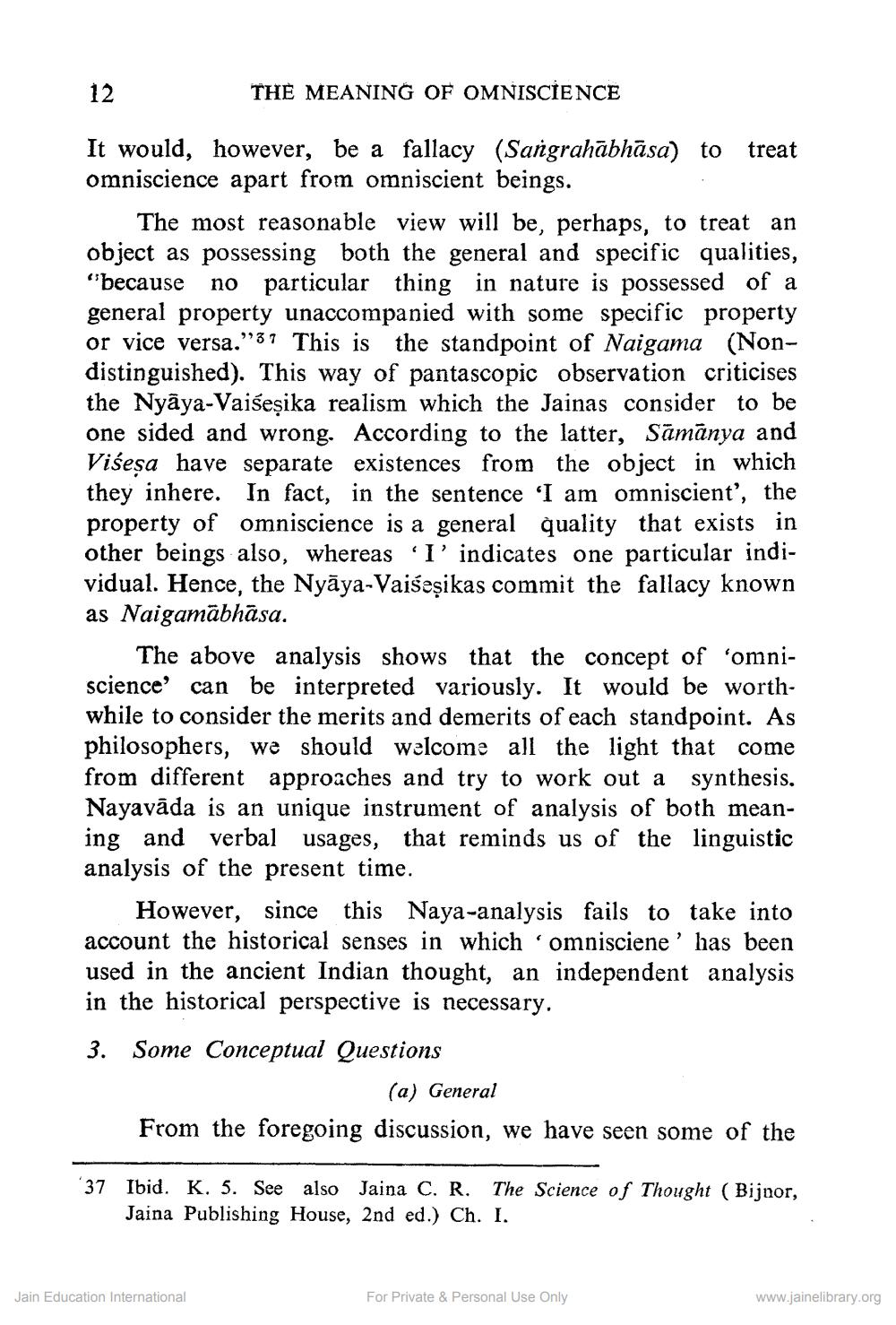________________
THE MEANING OF OMNISCIENCE
It would, however, be a fallacy (Sangrahābhāsa) to treat omniscience apart from omniscient beings.
The most reasonable view will be, perhaps, to treat an object as possessing both the general and specific qualities, "because no particular thing in nature is possessed of a general property unaccompanied with some specific property or vice versa."37 This is the standpoint of Naigama (Nondistinguished). This way of pantascopic observation criticises the Nyāya-Vaišeșika realism which the Jainas consider to be one sided and wrong. According to the latter, Samanya and Višesa have separate existences from the object in which they inhere. In fact, in the sentence 'I am omniscient, the property of omniscience is a general quality that exists in other beings also, whereas I' indicates one particular individual. Hence, the Nyāya-Vaiseșikas commit the fallacy known as Naigamābhāsa.
The above analysis shows that the concept of 'omniscience' can be interpreted variously. It would be worthwhile to consider the merits and demerits of each standpoint. As philosophers, we should welcome all the light that come from different approaches and try to work out a synthesis. Nayavāda is an unique instrument of analysis of both meaning and verbal usages, that reminds us of the linguistic analysis of the present time.
However, since this Naya-analysis fails to take into account the historical senses in which omnisciene' has been used in the ancient Indian thought, an independent analysis in the historical perspective is necessary. 3. Some Conceptual Questions
(a) General From the foregoing discussion, we have seen some of the
37
Ibid. K. 5. See also Jaina C. R. The Science of Thought (Bijnor, Jaina Publishing House, 2nd ed.) Ch. I.
Jain Education International
For Private & Personal Use Only
www.jainelibrary.org




